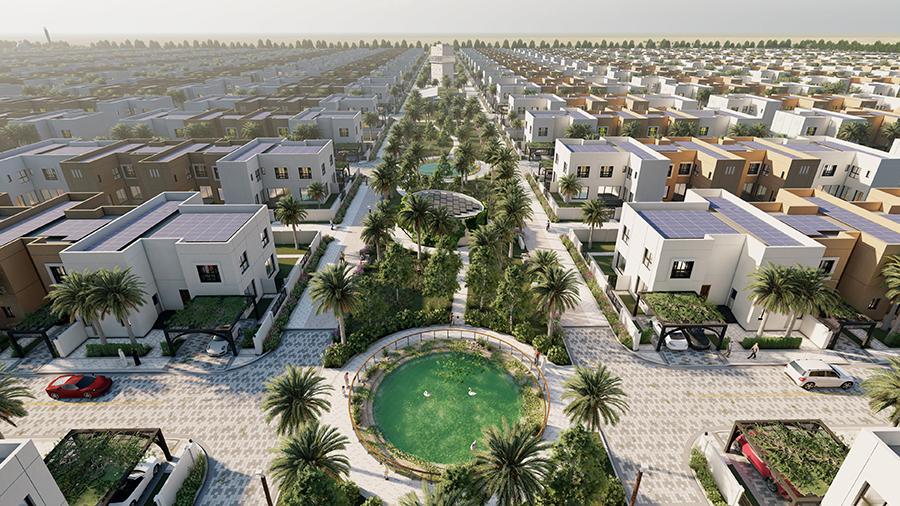- About
- Admissions
- Study at AUS
- Prospective Students
- Bachelor's Degrees
- Master's Degrees
- Doctoral Degrees
- Admission Publications
- International Students
- Contact Admissions
- Grants and Scholarships
- Sponsorship Liaison Services
- Testing Center
- New Student Guide
- File Completion
- New Student Orientation
- Payment Guide
- Executive Education
- Students with Disabilities
- Academics
- Life at AUS
- Research
- Contact Us
- Apply Now
- .

AUS collaboration with Sharjah Sustainable City shows students how to embed sustainability into built environment
Throughout the spring semester, Sharjah Sustainable City (SSC) and American University of Sharjah (AUS) hosted a four-part webinar series focused on sustainability and the built environment. The webinars brought together practitioners from SSC and academics from AUS to discuss energy and climate change, smarter mobility, ecodistricts and sustainable materials. The webinar series provided an opportunity for students to expand their knowledge beyond classroom discussions and theoretical ideas to how SSC is implementing sustainable practices on the ground. The students were able to learn about the successes and challenges faced in the development of sustainable housing and communities.
“Collaborations such as this webinar series with SSC allowed students to learn first-hand what it takes to incorporate sustainability principles into a project like Sharjah Sustainable City and the impact it can have on our individual and community carbon footprint. This is invaluable insight for students. It brings all of the knowledge gained in the classroom to life,” said Rose Armour, Head of AUS Sustainability.
Approximately 370 students, faculty and staff attended the different webinars, with students comprising the majority of the attendees. Professors in the College of Arts and Sciences, College of Engineering, and the College of Architecture, Art and Design were able to incorporate the webinars into their classroom learning.
“The SSC webinars provided a great window for our students and faculty alike to interact with prominent professionals who are working on the development of SSC. For my classes, it has substituted the face-to face site visits that have been limited by COVID-19 and has enriched the students’ knowledge and supported the delivery in my courses. As a result of these webinars, the Chief Sustainability Officer (CSO) of Diamond Developer asked us to measure and evaluate the thermal insulation of one villa and has voiced interest in our project on 3D concrete printing,” said Dr. Adil Tamimi, Professor of Civil Engineering at AUS.
Students who were able to attend all four of the webinars and received certificates of attendance for their time committed to this initiative. Ishrag Abdalla, an environmental sciences senior who received a certificate, said he found the webinars beneficial.
“The webinar series was a true success as AUS Sustainability capitalized on the university’s online-based transition. As a student, it’s often challenging finding the time to participate in new discourse while balancing our academic commitments; however, this series was offered at a great pace that piqued my curiosity in an especially important topic: sustainability. The SSC and AUS collaboration exposed the AUS community to global trends and sustainable urban planning,” Abdalla said.
AUS is looking forward to the next phase of collaboration with SSC in Fall Semester 2021, which will see the start of research projects with the College of Engineering and potential co-authoring of a research paper on urban planning. Building strong relationships with distinguished local companies enhances the AUS educational experience by providing real-world applications that cannot be learned in the classroom. This sentiment was echoed by Karim El-Jisr, Chief Sustainability Officer, Diamond Developers:
“The webinar series was an excellent opportunity to generate research interest in smart and sustainable cities, and to identify opportunities for practical learning in Sharjah Sustainable City. Indeed, blended education can accelerate knowledge transfer in sustainability and the built environment.”

